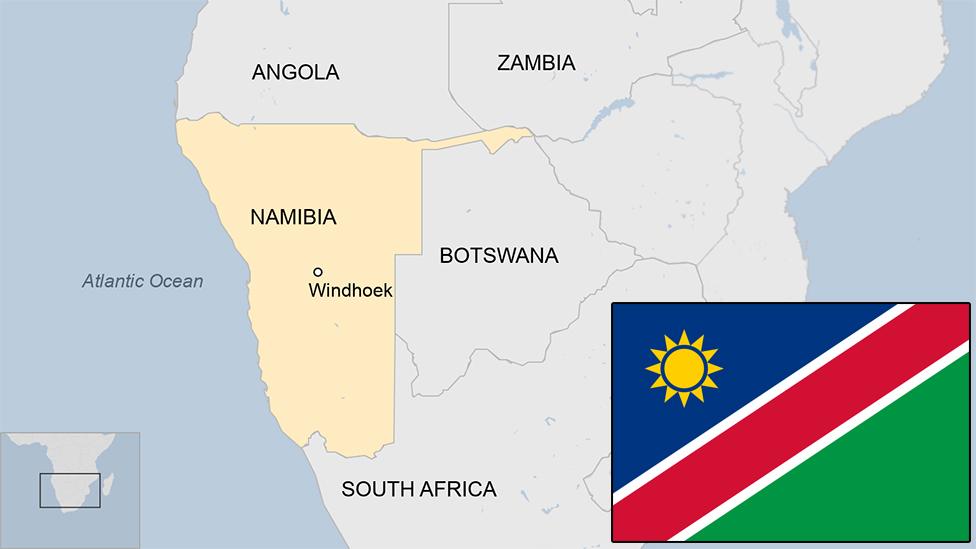More than 500,000 at risk in drought-hit Namibia
- Published
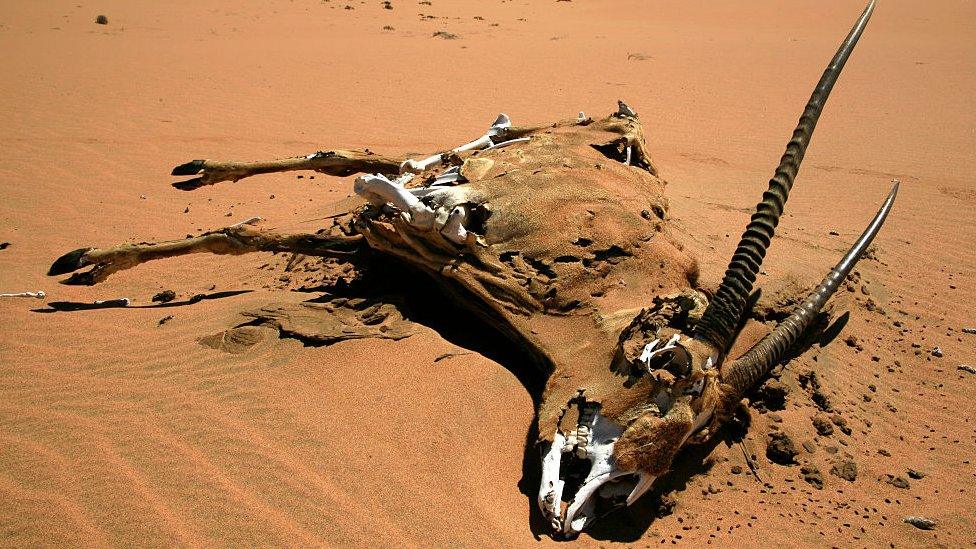
Livestock and wild animals are also at risk from the drought
Namibia is facing a "natural disaster" because of poor rains, President Hage Geingob says.
He has declared a state of emergency - the second in three years - over the situation, mobilising all government agencies to respond to the drought.
The lack of rain has already left 500,000 people - one in five Namibians - without access to enough food, the government says.
The sparsely-populated country has seen a succession of droughts since 2013.
The government had set aside $40m (£30m) to buy food and water tanks, and to transport livestock to and from grazing areas.
Prime Minister Saara Kuugongelwa-Amadhila has appealed for international help.
"We... call on all Namibians and development partners to assist in any way possible, so that we provide to our people who are affected, as well as the livestock," she said in the national assembly.
At least 60,000 domestic animals have died in the past six months.
Those affected are facing severe food shortages following the prolonged drought, the prime ministers's office, which is coordinating the response, has said.
President Geingob blamed a poor rainy season, which is usually comes between January and March, for being behind the problem.
Rivers have dried up in the north of the country, and people are depending on food and water relief from the government, journalist Tuyeimo Haidula told the BBC.
Livestock have been worst affected by the drought, she said.
Information and Communication Minister, Stanley Simataa, has asked farmers to reduce livestock to reasonable numbers that they can build when the situation changes, national broadcaster NBC reports.
The vast mineral-rich southern African nation imports around 70% of its food from neighbouring South Africa.
Its expansive arid geography makes it difficult to grow crops for subsistence use.
- Published28 June 2018
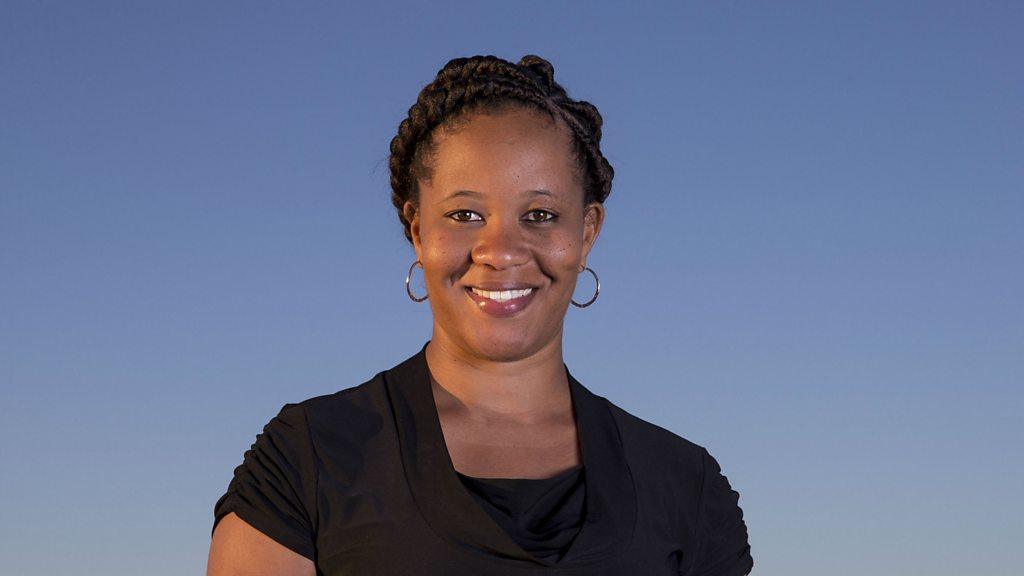
- Published14 January 2019
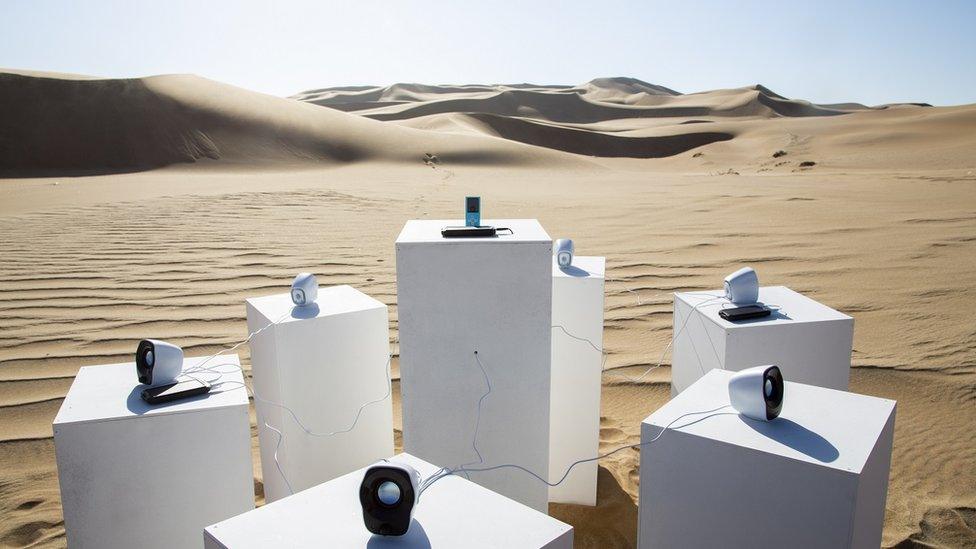
- Published29 August 2018
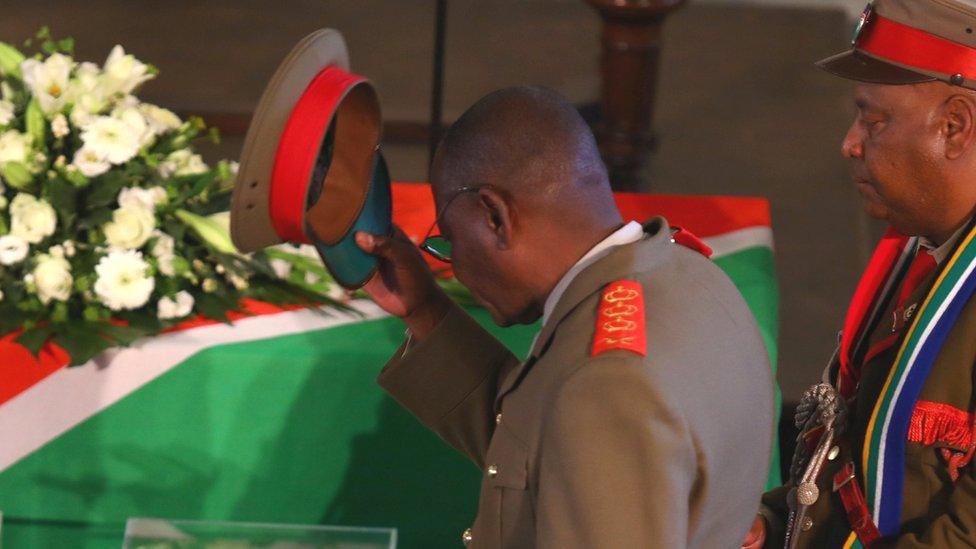
- Published10 December 2024
